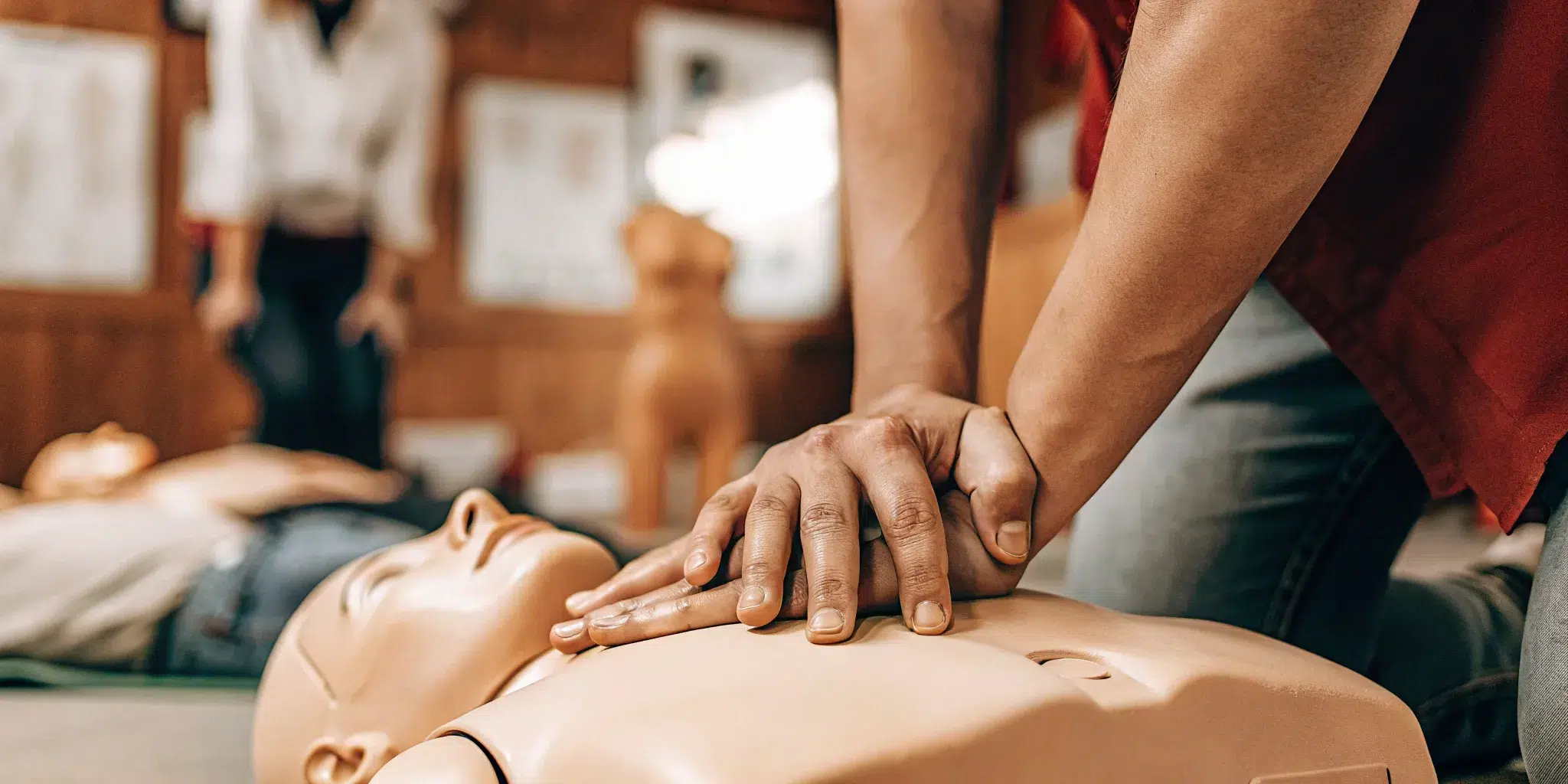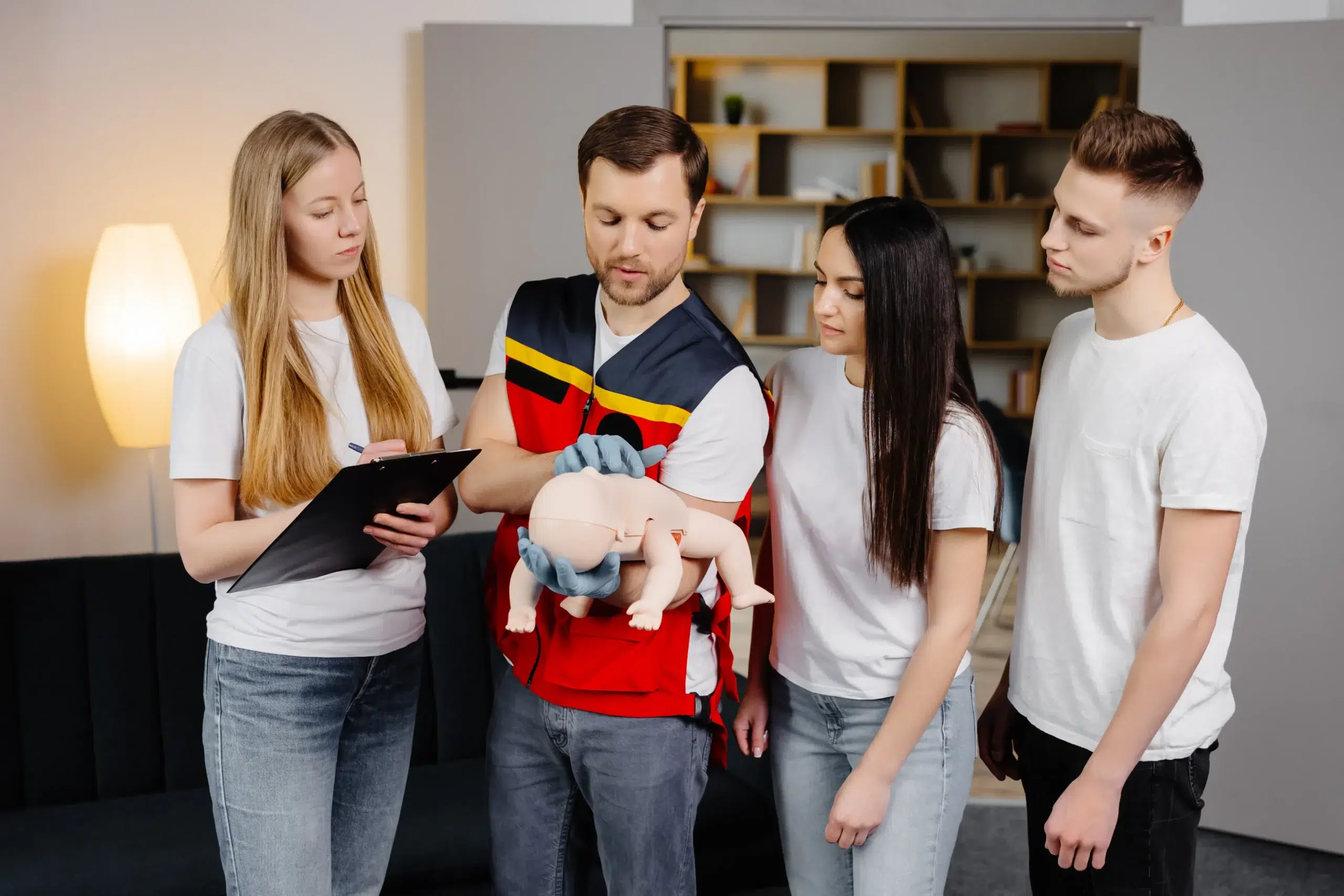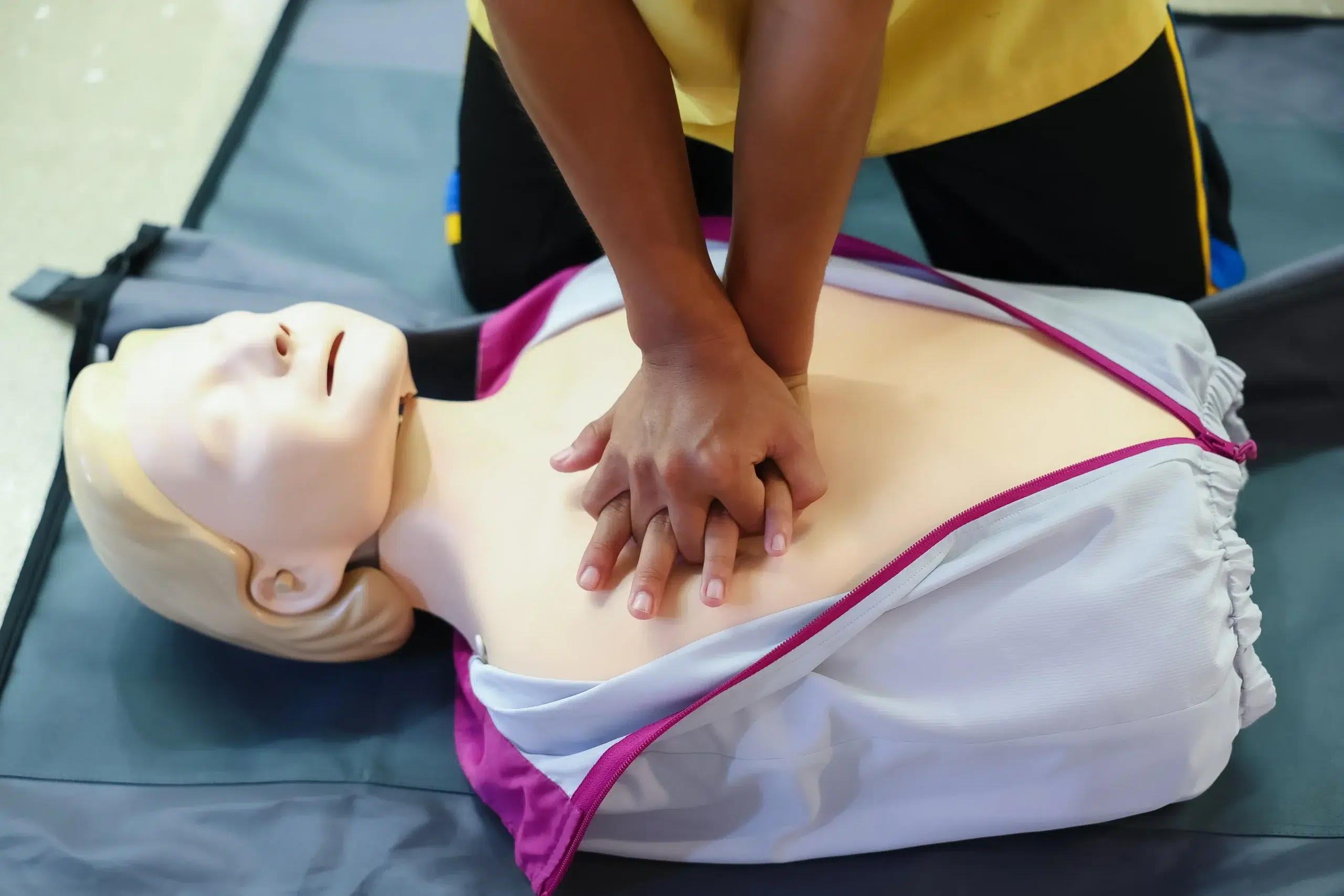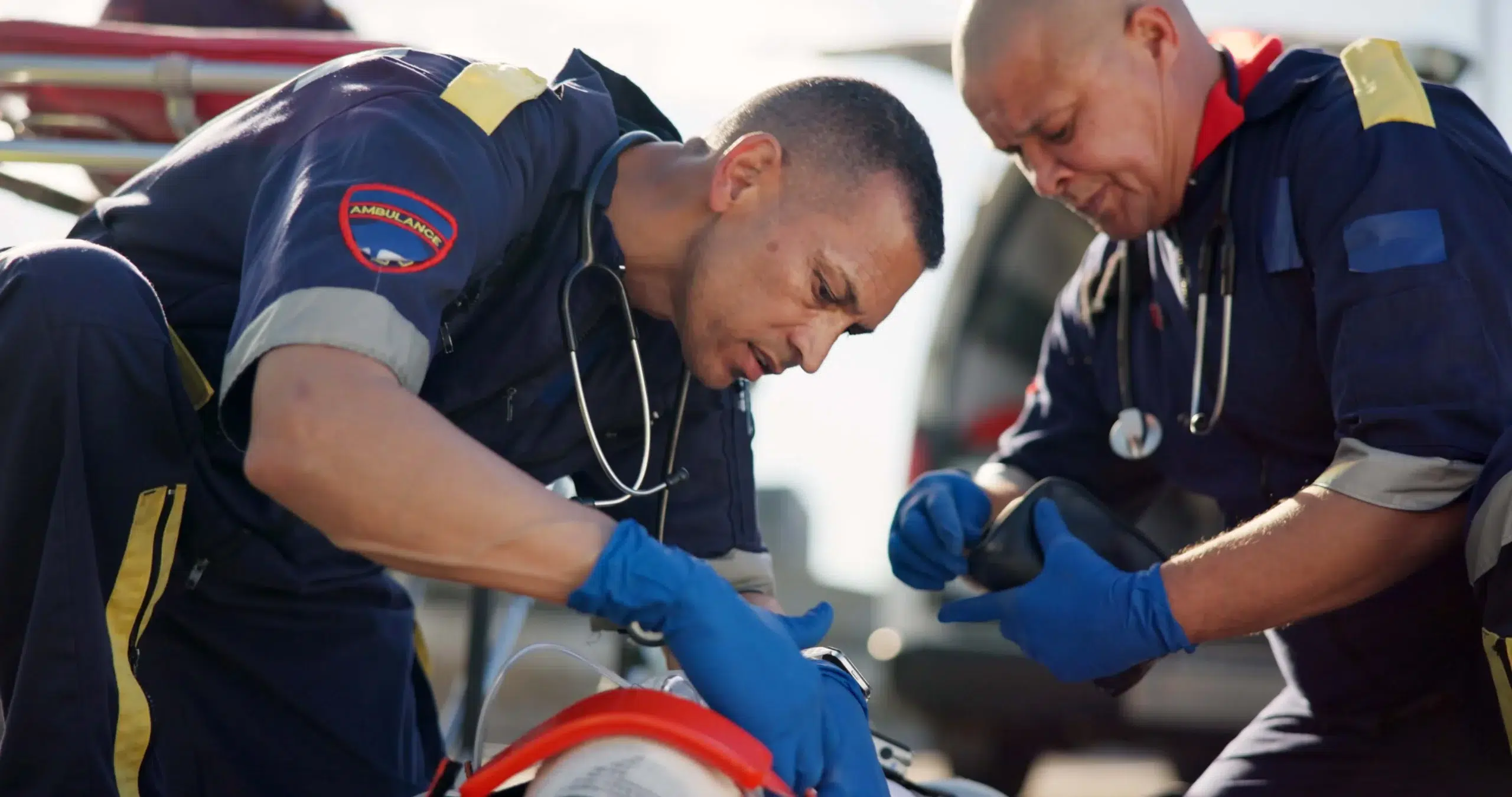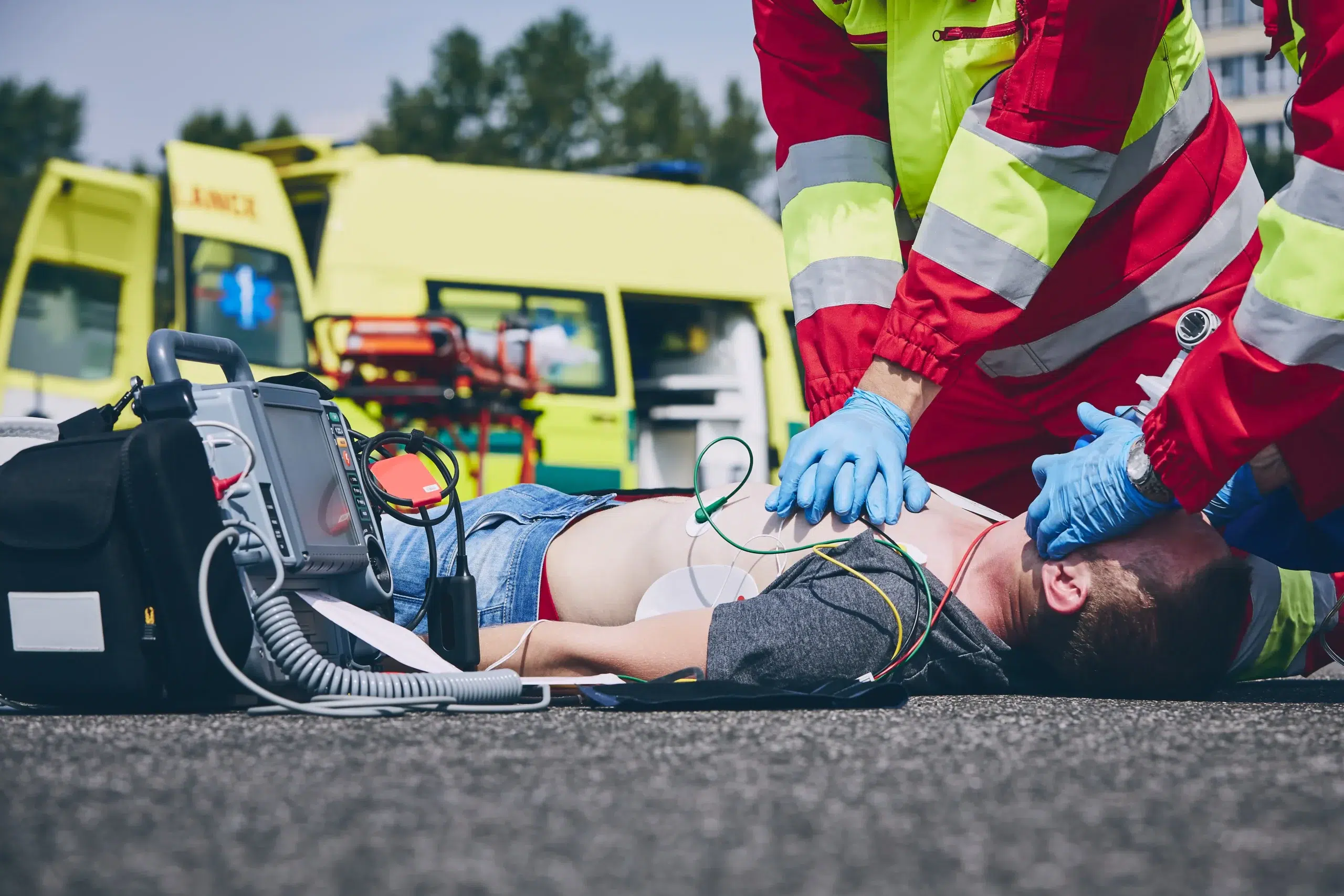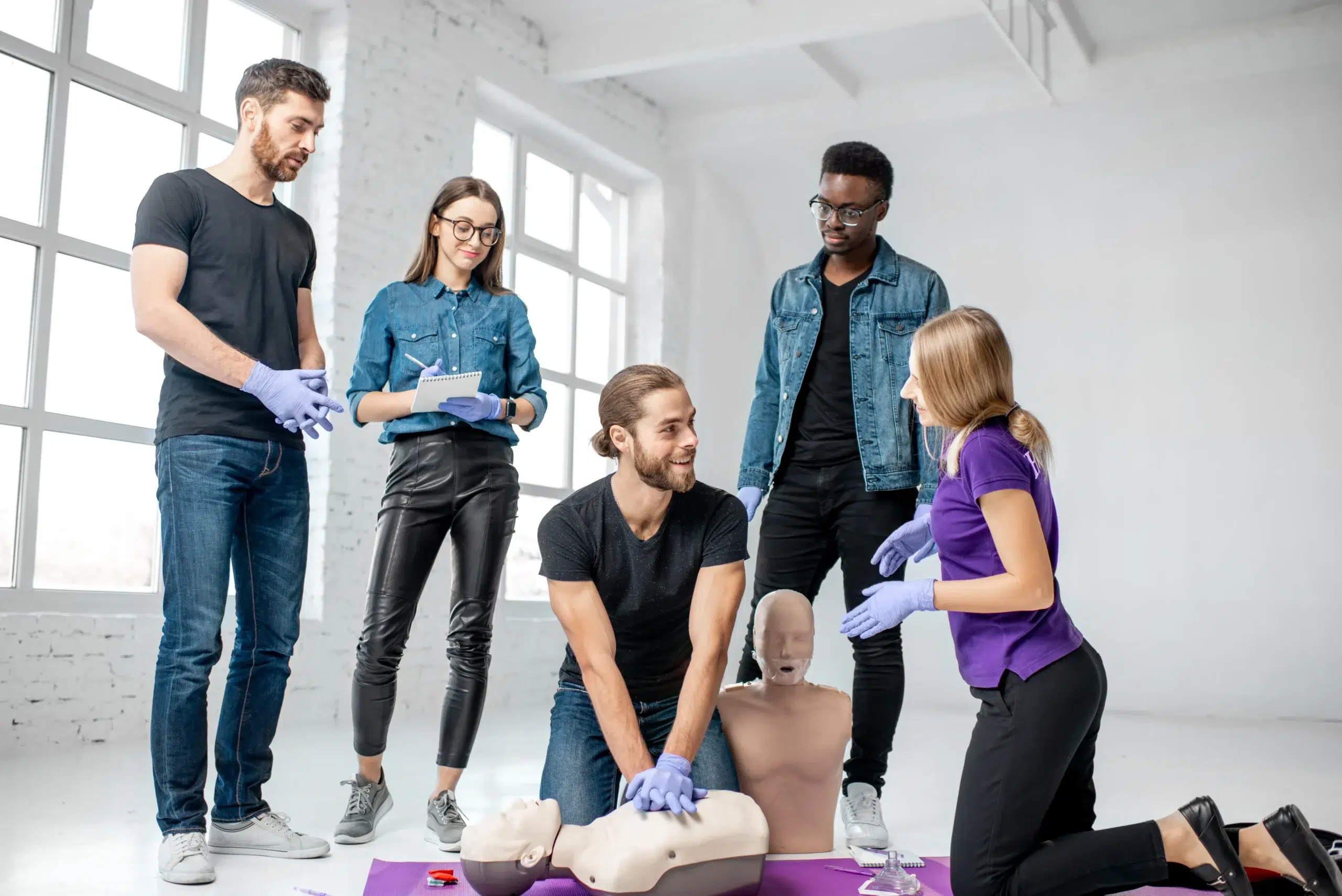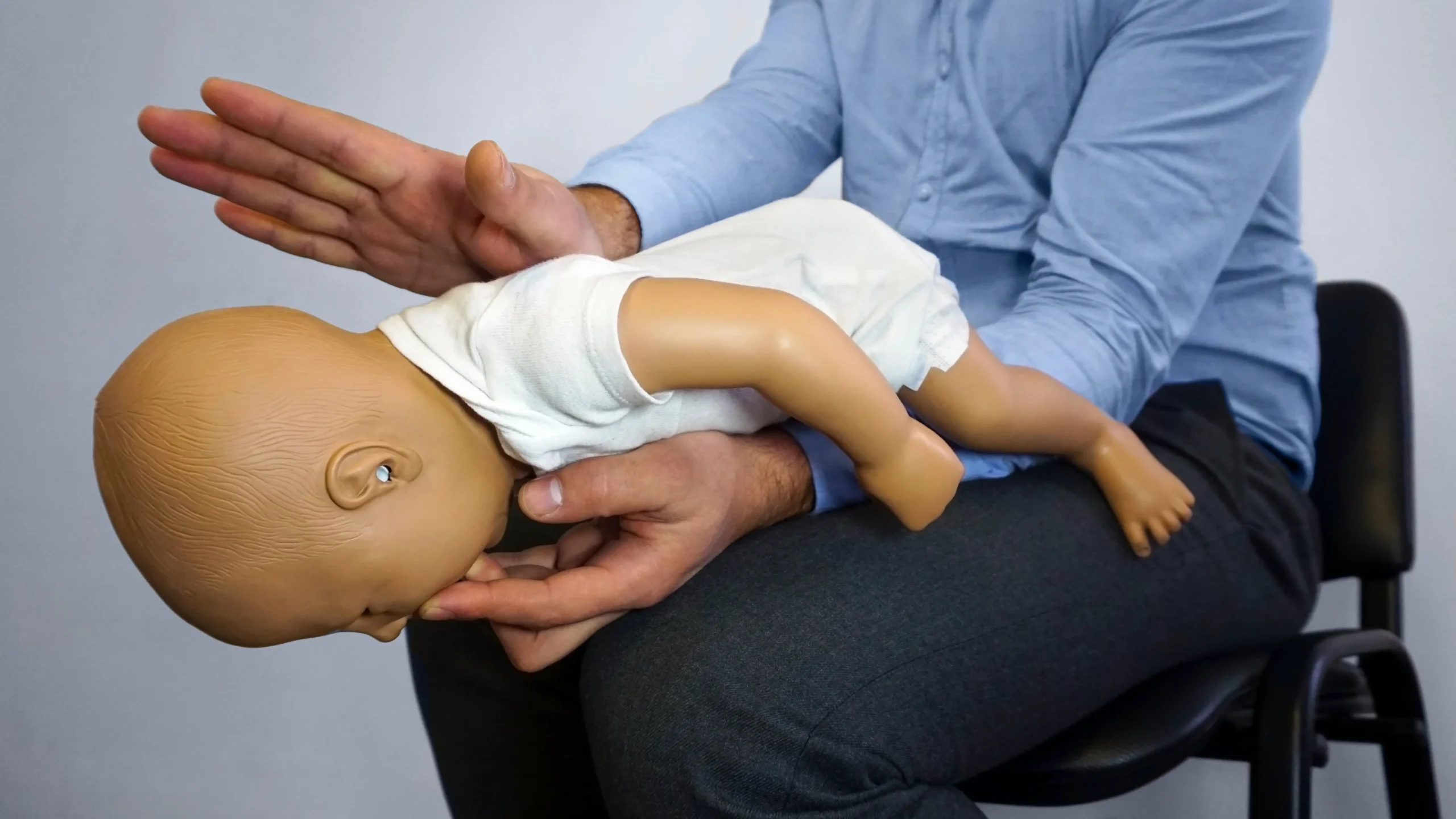Emergencies can happen anytime, anywhere. Are you prepared to respond? CPR certification Newark empowers you with the life-saving skills to assist in critical situations. This guide explores the world of CPR certification in Newark, California, offering valuable insights into the different courses, costs, and providers available. We’ll discuss the importance of AHA-certified training and highlight the benefits of choosing a reputable provider like Safety Training Seminars, known for its commitment to accessibility and affordable courses. From understanding the different levels of CPR certification, like BLS and First Aid, to navigating the certification process, this guide provides a comprehensive resource for anyone seeking CPR certification Newark.
Key Takeaways
- CPR certification provides essential life-saving skills: Equipping yourself with CPR training gives you the confidence to act quickly and effectively during emergencies, potentially making a real difference in critical situations. Explore various levels of certification, from basic CPR and First Aid to advanced options like BLS and PALS, to find the best fit for your needs.
- Choose the right CPR class format and provider: CPR training comes in various formats, including in-person classes, online learning, and blended learning options. Consider your learning style and schedule when selecting a course and provider. Look for reputable organizations like the American Red Cross, AHA Training Centers, and local providers like Safety Training Seminars, which offer flexible scheduling and a low price guarantee.
- CPR certification offers lasting personal and professional benefits: Investing in CPR training provides more than just a certification; it empowers you with life-saving skills, enhances your career prospects, and strengthens your community. Whether it’s meeting workplace requirements, advancing your career, or simply gaining the confidence to help in a crisis, the value of CPR certification extends far beyond the classroom.
What is CPR Certification in Newark?
CPR certification in Newark gives you the skills to respond to cardiac emergencies. It’s a credential confirming you know how to perform cardiopulmonary resuscitation (CPR). This training is critical for anyone who might need to respond to a medical crisis, but it’s especially important for healthcare providers, teachers, and first responders. Knowing CPR empowers you to act quickly and effectively when every second counts. Learn more about our CPR and First Aid certification courses.
CPR certification courses in Newark cover core techniques like chest compressions, rescue breaths, and how to use an automated external defibrillator (AED). Organizations like the American Heart Association (AHA) and the American Red Cross offer these courses locally. The AHA ensures its training aligns with the most current guidelines, so you’re learning the best practices for responding to cardiac arrest. The Red Cross also offers various CPR and AED training options, including in-person classes, online learning, and a combination of both, giving you flexibility to choose the format that works best for your schedule. Check out our BLS courses in Newark.
When you successfully complete your CPR certification course, you’ll receive a certification card, usually valid for two years. This card demonstrates your competence and can even open doors to jobs requiring emergency response training. Beyond the professional advantages, CPR certification gives you the confidence to step in during emergencies, making a real difference in your community. We also offer discounted group CPR classes.
CPR Certification Classes Available
Choosing the right CPR class depends on your specific needs and goals. Here’s a breakdown of the different CPR certification classes available in Newark:
BLS Certification
The Basic Life Support (BLS) certification is a cornerstone for healthcare providers, first responders, and anyone in a position requiring emergency response. This course, formerly known as BLS for Healthcare Providers, covers core life-saving techniques, including high-quality CPR for adults, children, and infants, along with the critical skills of using an Automated External Defibrillator (AED) and relieving choking. The BLS course offered by Safety Training Seminars emphasizes teamwork and clear communication during emergencies, preparing you to confidently respond in high-pressure situations. For those seeking the most affordable options, be sure to check out our low price guarantee.
First Aid Certification
First Aid certification is a valuable addition to your CPR training. While CPR addresses life-threatening situations, First Aid training equips you to handle a broader range of medical emergencies, from minor cuts and burns to more serious injuries. Learning these skills allows you to provide immediate care and potentially minimize harm before professional medical help arrives. Often, you can find combined CPR and First Aid certification courses, making it convenient to develop both skill sets. Discounted group rates are also available for those looking to train with friends, family, or colleagues.
AED Training
AED training is typically integrated into most comprehensive CPR certification courses. This training focuses on the effective use of an AED, a portable device that can analyze heart rhythms and deliver an electric shock to restore a normal heartbeat during sudden cardiac arrest. You’ll learn to quickly assess a situation, operate the AED, and coordinate with emergency medical services. The ability to use an AED can significantly increase the chances of survival for someone experiencing cardiac arrest. Check out our CPR and First Aid certification page for more information on courses that include AED training.
Specialized Courses for Healthcare Providers
Healthcare professionals often require more advanced training beyond basic CPR and First Aid. ACLS (Advanced Cardiovascular Life Support) and PALS (Pediatric Advanced Life Support) certifications are examples of specialized courses that delve into more complex life support techniques. These certifications are crucial for professionals working in critical care settings and emergency medicine. While Safety Training Seminars offers a range of courses, you can also explore options like the BLS Provider CPR classes at Newark Beth Israel Medical Center, which focus on essential skills for both individual rescuers and teams. Additionally, consider exploring RQI classes for maintaining competency in high-quality CPR. These courses emphasize high-quality CPR and effective teamwork in critical situations.
CPR Certification Costs & Value
Knowing the price of CPR certification and understanding its inherent value are two important factors in your decision to get certified. This section breaks down the costs associated with different CPR classes, explores potential discounts, and highlights the incredible return on investment this life-saving skill offers.
Individual Class Prices
CPR certification costs vary depending on the provider, the type of course, and any included add-ons like First Aid training. For example, a BLS CPR and AED class at Safety Training Seminars is $69.95, while adding CPR and First Aid certification brings the total to $89.95. Check with specific providers for their most up-to-date pricing. You can often find this information directly on their websites, such as Safety Training Seminars’ BLS course calendar.
Group Discounts & Packages
If you’re certifying a group, such as coworkers or a community organization, explore group discounts. Many providers offer reduced rates for group CPR training. Safety Training Seminars offers discounted group rates. Contacting providers directly to discuss your group’s needs is the best way to determine pricing. This can be a cost-effective way to equip multiple people with these essential skills.
ROI: Personal & Professional Growth
While there’s a monetary investment involved in getting CPR certified, the return on investment goes far beyond the price tag. Learning CPR empowers you with the ability to potentially save a life. Cardiac arrest is a leading cause of death, and knowing CPR can dramatically increase the chances of survival. The confidence and skills you gain extend beyond the classroom, enriching both your personal and professional life. CPR certification can be a valuable asset in certain careers, demonstrating a commitment to public safety and potentially opening doors to new opportunities. For many, the peace of mind that comes with being prepared for a crisis is invaluable. Learn more about our low price guarantee.
CPR Training: Duration & Formats
CPR training is available in several formats to suit different learning styles and schedules. Understanding the differences will help you choose the best option for you.
In-Person Classes
In-person CPR classes offer hands-on training led by experienced, certified instructors. These courses provide real-time feedback and personalized guidance as you practice essential skills. In-person training offers a comprehensive and engaging learning experience, ideal for those who thrive in interactive environments. Safety Training Seminars offers in-person BLS courses in Newark, perfect for both individuals and larger groups.
Online Certification
Online CPR certification offers a convenient way to learn the basics of CPR and first aid, covering topics like hazard recognition and basic life support. However, it’s important to note that online-only certification isn’t enough to meet OSHA requirements. While online courses offer a helpful introduction, they should be paired with hands-on training for a fully recognized certification.
Blended Learning
Blended learning combines online coursework with in-person skill sessions. This format lets you study the theory online at your own pace and then attend a hands-on session to practice your skills. Blended learning provides a flexible and effective path to CPR and first-aid certification that meets OSHA standards.
Flexible Scheduling
We understand that finding time for training can be challenging. That’s why many CPR providers, including Safety Training Seminars, offer flexible scheduling. Whether you prefer weekday or weekend classes, or morning or evening sessions, you can find a course that fits your schedule. Visit our website for a list of upcoming classes.
Why Get CPR Certified?
CPR certification equips you with essential skills and knowledge that can make a real difference in critical situations. It’s about more than just a certificate; it’s about empowering yourself to act confidently and effectively when every second counts.
Life-Saving Skills & Confidence
The most significant reason to pursue CPR certification is the potential to save a life. Sudden cardiac arrest can happen anytime, and knowing how to respond can dramatically improve the odds of survival. CPR provides immediate assistance, bridging the critical gap before professional medical help arrives. This ability to respond effectively not only increases the chances of a positive outcome but also instills a sense of confidence and preparedness. Learning CPR builds your self-assurance and reduces feelings of helplessness during emergencies.
Workplace Requirements
In many work environments, especially those further from hospitals, having CPR-trained employees is essential. OSHA mandates CPR-trained personnel in specific workplaces to ensure immediate response capabilities during emergencies. Earning your CPR certification demonstrates your commitment to workplace safety and can be a valuable asset in meeting these requirements.
Career Advancement
CPR certification can create new opportunities and enhance your career path. In healthcare, education, and many other fields, CPR certification is a sought-after qualification. It shows your preparedness to handle emergencies and your dedication to safety, making you a more competitive candidate. Getting certified can be a smart step for your professional development.
Community Impact & Safety
CPR certification goes beyond personal and professional benefits; it strengthens communities. When more people are trained, the likelihood of someone receiving timely assistance during a medical crisis increases. This creates a safer environment for everyone—family, friends, colleagues, and neighbors. CPR training empowers individuals to contribute to the well-being of their communities and fosters a culture of preparedness and support.
Choosing a CPR Provider
Finding the right CPR provider is crucial for a valuable learning experience. Here’s what to consider:
Accreditation & Credentials
First, confirm the provider offers accredited courses. Look for American Heart Association (AHA) certified classes, like those offered by Safety Training Seminars. AHA certifications are widely recognized and respected, ensuring your training meets industry standards.
Instructor Qualifications
Experienced instructors make all the difference. Inquire about the instructors’ backgrounds and expertise. Choose a program with instructors who are knowledgeable and passionate about teaching these essential skills. Safety Training Seminars prioritizes experienced instructors dedicated to comprehensive training.
Class Reviews & Testimonials
Reading reviews from past participants offers valuable insights. Look for comments about the quality of instruction, the hands-on practice, and the overall learning experience. Positive feedback can give you confidence in your choice.
Hands-On Practice
Effective CPR training requires significant hands-on practice. Confirm that the program includes ample opportunities to practice CPR techniques and use an AED in a simulated environment. Hands-on training is essential for building muscle memory and confidence. Remember, OSHA does not accept online-only CPR certifications.
Get CPR Certified: The Process
Getting your CPR certification is straightforward and involves a few key steps. Here’s what you can expect:
Register & Schedule
First, find a reputable training center. Safety Training Seminars, conveniently located in Newark, offers a variety of AHA-certified courses, including BLS, ACLS, PALS, and First Aid. Check their website for a class schedule that fits your availability. Many organizations offer weekday, weekend, and evening classes to accommodate busy schedules. Consider exploring options in nearby areas like Fremont and San Jose if needed. Registering is usually a simple online process.
Course Materials & Prep
Once registered, you’ll likely receive course materials. These might include a student manual or access to online resources. Take some time to review the material before class. Familiarizing yourself with the basic concepts and techniques beforehand will make the in-person training more effective and boost your confidence for the hands-on portion.
Training & Assessment
CPR classes typically involve a combination of instruction and hands-on practice. You’ll learn to recognize the signs of a cardiac arrest, perform chest compressions, give rescue breaths, and use an AED. Instructors will guide you through each step, providing feedback and answering any questions. There’s usually a skills assessment at the end of the class to ensure you’ve mastered the techniques.
Certification & Renewal
After successfully completing the course and assessment, you’ll receive your CPR certification card, typically valid for two years. Keep track of the expiration date. Renewing your certification involves another training course and assessment. Staying current ensures you’re always equipped with the most up-to-date life-saving skills.
Top CPR Providers in Newark
Finding the right CPR training provider is crucial for a positive and effective learning experience. Here are a few reputable options in the Newark area:
Safety Training Seminars
Safety Training Seminars, a woman-owned AHA Training Center, offers various AHA courses, including BLS, ACLS, PALS, CPR, and First Aid. They prioritize accessibility, offering a low price guarantee and extended customer service hours. Explore their CPR and First Aid certification courses and learn about their discounted group classes. Serving Newark, Fremont, and San Jose, they focus on affordability and convenience. Check their BLS course schedule and find information on their RQI classes. Their commitment to affordability is reinforced by their low price guarantee.
AHA Training Centers
AHA Training Centers provide standardized training led by certified AHA instructors. Locate an AHA Training Center near you and enroll in a BLS CPR course to receive high-quality instruction and your BLS CPR certification card upon completion.
American Red Cross
The American Red Cross offers various CPR and AED training options, including in-person classes, online learning, and blended learning (a combination of online and in-person instruction). Find a CPR class format that fits your learning style and schedule. Their widespread presence and diverse learning options make them a reliable resource.
Newark Beth Israel Medical Center
Newark Beth Israel Medical Center provides healthcare provider classes, including CPR training. These courses are designed for medical professionals and focus on advanced life-saving skills. Learn more about their healthcare provider classes on their website. Their specialized focus makes them a valuable resource for healthcare workers.
CPR Certification: Common Myths
Let’s clear up some common misconceptions about CPR certification. Understanding the facts is important, as these myths can create confusion.
Online-Only Certification
One of the biggest misunderstandings about CPR training is that you can become certified entirely online. While online resources can be helpful supplements, offering valuable information, they don’t replace hands-on training. OSHA doesn’t accept online-only CPR certifications. To be truly prepared for emergencies, you need in-person practice and evaluation from a certified instructor. This hands-on training builds the muscle memory and confidence you need to perform CPR effectively under pressure.
Certification Expiration
Another common myth is how long your CPR certification remains valid. Many assume it lasts forever. In reality, CPR certifications typically expire every two years. This is because guidelines and best practices are updated, and refreshing your skills ensures you provide the most effective care. Check with your certifying organization, like the American Red Cross, for specific renewal requirements. Regular renewal keeps your skills sharp and your certification current.
Online Learning Effectiveness
While convenient for learning CPR basics, online learning isn’t a substitute for hands-on practice. Online courses can be a great starting point for understanding the concepts and theory behind CPR. However, they lack the crucial element of physical practice. Mastering chest compressions, rescue breaths, and proper technique requires in-person training with a qualified instructor. Think of it like learning to drive—you wouldn’t hit the road after only watching videos. The same principle applies to CPR—practical experience is essential for effective performance.
Get CPR Certified in Newark: Next Steps
Ready to gain life-saving skills and become CPR certified? Here’s how to get started in Newark:
- Explore Your Options: Research various CPR certification providers in the area. Look into established organizations like the American Heart Association (AHA) and the American Red Cross, alongside local training centers like Safety Training Seminars. Consider factors like class schedules, course formats (in-person, online, or blended), and whether they offer AHA-certified courses. Safety Training Seminars, for example, offers a low price guarantee and caters to groups with discounted rates. Check out their CPR and First Aid certification courses for more details.
- Choose the Right Course: Determine which CPR certification level suits your needs. Are you looking for basic CPR and First Aid knowledge, or do you require a more advanced certification like BLS for healthcare professionals? Consider any specialized training you might need, such as AED usage or pediatric CPR (PALS). Explore the different BLS course options available at Safety Training Seminars.
- Check Schedules and Register: Once you’ve chosen a provider and course, check their upcoming schedules. Many providers offer weekday and weekend options to accommodate various schedules. Safety Training Seminars provides a convenient online calendar to browse available courses and register directly.
- Prepare for Your Class: After registering, you might receive pre-course materials or online modules to review. Familiarizing yourself with this information beforehand can enhance your learning experience during the in-person training session.
- Attend and Participate Actively: On the day of your training, arrive on time, ready to participate actively. Hands-on practice is a crucial part of CPR training, allowing you to develop the muscle memory and confidence needed to perform CPR effectively.
- Receive Your Certification: Upon successful completion of the course, you’ll receive your CPR certification card. This card validates your training and is typically valid for two years. Remember to keep your certification current by taking a renewal course before it expires. You can learn more about renewal requirements from your chosen provider or organizations like the American Heart Association.
Related Articles
- CPR, BLS, ACLS, PALS, & First-aid Courses in Newark, CA
- BLS CPR Classes in Newark, CA – Newark CPR Classes
- CPR & First-aid Classes in Newark, CA – Newark CPR Classes
- AHA ACLS Classes in Newark, CA – Newark CPR Classes
- Low Price Guarantee CPR Classes in Newark, CA
Frequently Asked Questions
How long does it take to get CPR certified?
CPR certification courses typically take a few hours to complete, depending on the specific course type and provider. Some providers offer expedited courses, while others offer more comprehensive training spread over a longer period. Check with your chosen provider for their course duration details.
What’s the difference between CPR and First Aid certification?
CPR focuses specifically on life-saving techniques for cardiac arrest and breathing emergencies. First Aid covers a broader range of medical situations, from minor injuries like cuts and burns to more serious conditions requiring immediate attention before professional medical help arrives. Many providers offer combined CPR and First Aid certification courses.
How much does CPR certification cost?
The cost varies depending on the provider, course type, and location. Some providers offer discounts for groups, students, or returning customers. It’s always a good idea to contact the provider directly or check their website for the most up-to-date pricing information. Look for providers like Safety Training Seminars, which offer a low-price guarantee.
How often do I need to renew my CPR certification?
CPR certifications are typically valid for two years. Renewing your certification involves taking another course and passing a skills assessment. Staying current with the latest guidelines and techniques ensures you can provide the most effective care in an emergency.
What if I’m nervous about the hands-on portion of the training?
It’s completely normal to feel a little apprehensive about the hands-on part of CPR training. Certified instructors create a supportive learning environment where you can practice and ask questions without feeling pressured. The more you practice, the more confident you’ll become. Remember, the goal is to equip you with the skills and confidence to respond effectively in a real emergency.
This article was written for free by MEGA SEO.
